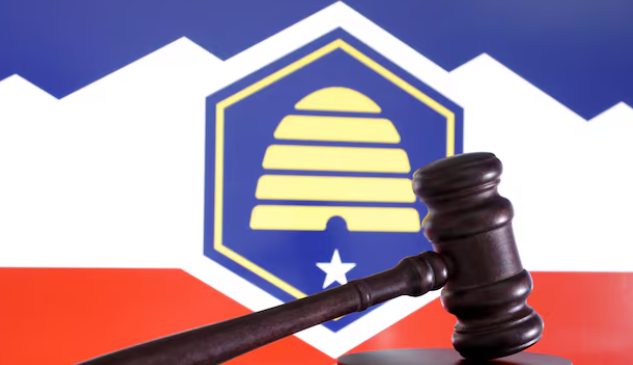Utah is moving forward with a proposal to allow law graduates to become licensed without taking the bar exam, following a trend set by a few other states that have introduced alternative pathways to legal licensure in recent years.
On Monday, the Utah Supreme Court unveiled a plan that would enable graduates of American Bar Association-accredited law schools to practice law in the state after completing 240 hours of supervised practice under an experienced attorney, along with meeting other requirements. Law graduates could still choose to sit for the traditional bar exam if they prefer.
The court is currently seeking public comment on the proposal, which will remain open until December 19. The final decision on its adoption will come after this period of feedback. The proposal came from a working group convened in 2020 to explore alternatives to the bar exam. The court’s decision to circulate the proposal for public comment signals that the justices are open to alternative methods for licensing lawyers.
In 2020, Utah implemented a temporary diploma privilege due to the COVID-19 pandemic, which allowed law graduates to bypass the bar exam. Catherine Bramble, a Brigham Young University law professor and member of the working group, said the success of that temporary program could help build support for the proposed alternative pathway.
“My hope is that this could be implemented as soon as next summer,” Bramble said.
The National Conference of Bar Examiners, which develops the components of the bar exam used by most states, had not provided immediate comment on Utah’s proposal as of Tuesday.
Other States Move Toward Reform
Utah is joining a growing movement to reform law licensure requirements. Oregon led the charge in 2023 by adopting an apprenticeship pathway for law school graduates that allows them to bypass the bar exam entirely. Washington followed suit with a similar approach in March, and Arizona rolled out a plan in July that lets law graduates who fail the bar exam earn a license through a practical skills program instead.
In contrast, the California Supreme Court rejected a proposal in October that would have allowed law graduates to practice after working for up to six months under an experienced attorney’s supervision and submitting a portfolio of legal work for evaluation. The court argued that the plan posed “an array of ethical and practical problems.”
Criticism of the Bar Exam
The Utah working group’s report noted several criticisms of the bar exam as a measure of a lawyer’s readiness to practice law. It argued that the exam does not effectively assess the full range of skills and knowledge new lawyers need and that it does not protect the public as effectively as other methods might. The report also highlighted persistent racial disparities, pointing out that there are significant score gaps between white and minority test-takers. Additionally, the cost of studying for and taking the bar exam was cited as a factor that influenced the group’s decision to propose an alternative pathway.
Under the proposed plan, in addition to completing 240 hours of supervised practice after graduation, participants would need to complete a series of courses during law school and pass a written exam similar to the Multistate Performance Test, which is currently part of the national bar exam.
The proposal marks a significant step toward changing how the legal profession approaches licensure, with the potential to increase access to the legal profession and reduce the barriers many aspiring lawyers face in obtaining their license.

